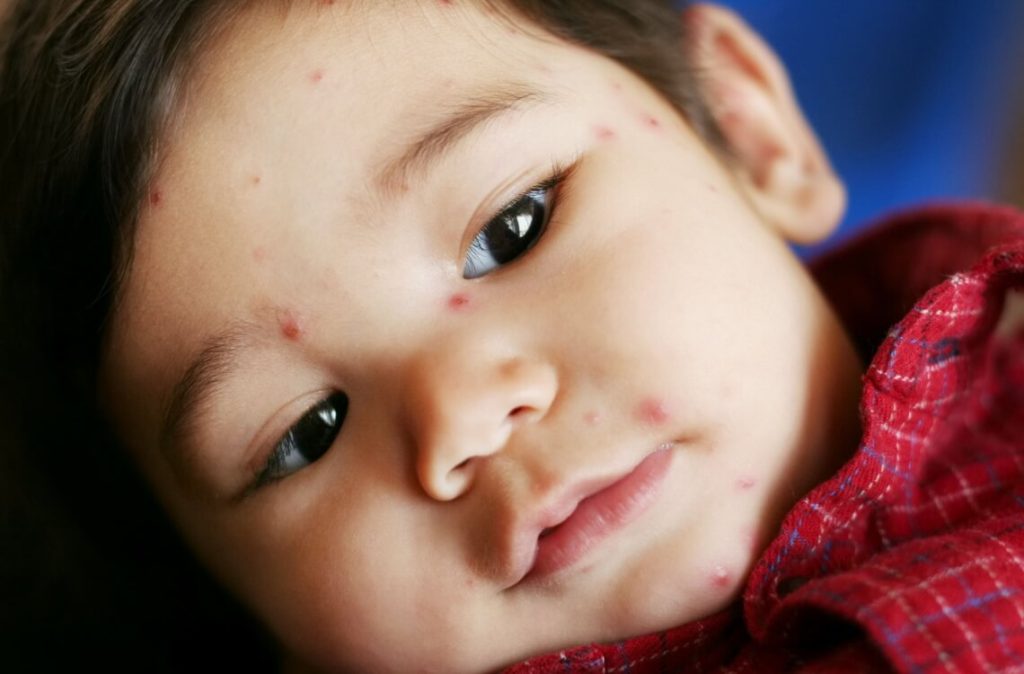Chickenpox is one of those things that a child may eventually get.
But what happens when its your kids who come home with a case of chickenpox?
We sat down with Pharmacist Nazatul Amira Hamzah from Primabumi Sdn Bhd to learn more about how parents can care for their child who gets chickenpox.
Nazatul is a qualified pharmacist with 10 years of experience in pharmacy practice involving both hospital and community settings.
She currently holds the position of Pharmacist and Key Account Manager at a renowned pharmaceutical company in Kuala Lumpur.
This is a pharmacist’s advice on how parents can deal with chicken pox when their kids get it.
What is chickenpox?
Chickenpox is a very contagious infection caused by the varicella-zoster virus. It mainly affects kids but adults can also get it.
Does chickenpox spread?
Chickenpox is highly contagious.
Once infected, your child may spread the virus to other people from day one or two before feeling unwell until all the blisters have crusted over.
The transmission happens through body fluids (from sneezing, coughing, etc.) and bodily contact, i.e., by touching the rash.
Is chickenpox dangerous?
Although complications from chickenpox are less likely in healthy children, they are still possible.
These can include dehydration, bacterial infections of the skin, blood, and soft tissues and even encephalitis (inflammation of the brain).
Chickenpox is also found to increase the risk of pneumonia (inflammation in the lungs), blood clotting disorder, and liver issues in some people.
A child would have a greater risk of getting complications from chickenpox if their biological parents have not had chickenpox before or received vaccination against varicella infection.
How do I tell when my child is having chickenpox?
It may take a few weeks before your child catches the virus and when they first appear ill.
The first telltale sign of chickenpox is of course the itchy skin rash that resembles small, fluid-filled blisters.
These blisters will burst into scabs or crusty spots that disappear.
Other symptoms that accompany chickenpox include low-grade fever, feeling tired, headache, and a stomachache with a loss of appetite.
Does my child need an antibiotic?
Antibiotics are not necessary as chickenpox is caused by a virus, not by a bacteria.
A case of chickenpox are usually mild and will resolve without treatment.
Doctors will not normally prescribe antiviral medicines except for those who develop serious symptoms.
How do I help my child recover from chickenpox?
Here are the most important steps you can take to relieve your child’s symptoms and help them have a speedy recovery.
First, make sure your child gets plenty of fluids and rest to prevent dehydration and maintain optimum body functions.
Bring down your child’s fever with paracetamol or ibuprofen.
But never give aspirin to anyone younger than 16 years old—unless under doctor’s orders.
Encourage your child to not scratch the blisters as much as possible, as doing so could cause the infection to spread to other parts of the body and other people.
Keep your child’s body cool and comfortable to lower the likelihood of further skin irritations.
You can ease the intense itchiness using lotions and oral antihistamines.
Calamine lotion with zinc is a great option as it provides soothing, cooling, and anti-itch actions.
Remember not to apply too much calamine lotion at a time because a thick layer can dry up the skin and result in more itchiness.
Consult your doctor or pharmacist on the most appropriate choice of antihistamine tablet or liquid for your child.
How long will it take for my child to recover from chickenpox?
If your child’s immune system is otherwise healthy, symptoms of chickenpox may go away on their own within 1 or 2 weeks.
Can my child attend school or daycare while recovering from chickenpox?
Your child is highly contagious when their blisters still contain fluid.
Therefore, they should only return to school or daycare approximately 7 to 10 days after the first appearance of the rash. Or until all the blisters have scabbed over.
This is so they don’t spread the virus to others.
Can we protect ourselves from chickenpox?
Yes, chickenpox can be prevented with immunisation.
You can get the varicella-zoster vaccine for yourself and your family members from private clinics or hospitals.
The three brands currently available in Malaysia—Varivax®, Varilrix®, and SKYVaricella®—target recipients as young as 12 months old.
Speak to your healthcare provider to find out more information.
Source: Nazatul Amira Hamzah, Pharmacist at Primabumi Sdn Bhd
Disclaimer: The information provided in this article is for informational purposes only and should not be considered as medical advice from Motherhood. For any health-related concerns, it is advisable to consult with a qualified healthcare professional or medical practitioner.
For more insightful stories and fun recipes, stay tuned to Motherhood Story!
